Farewell—and Onward!
This blog post is written by Lauren McGowan, former United Way of King County associate vice president, ending homelessness & poverty, who bids farewell to the organization after 18 years.
In 2004, I began serving as an AmeriCorps VISTA with United Way of King County. Bright-eyed and eager to help lead our Free Tax Preparation Campaign, I quickly found important work, best friends and caring mentors. One year of service turned into the opportunity of a lifetime to grow, learn, serve and lead. Over the years I have had the privilege of working with and learning from incredible clients, colleagues, community leaders, partners and hundreds of AmeriCorps members.
By leveraging the power and potential of philanthropic, community and government resources, we helped people meet their basic needs while working to transform unjust policies, systems and institutions. Together, we designed policies and programs that address hunger, poverty and homelessness and I am so very proud of the impact we have had together.
But for all the progress we have made, it has not been enough. There are too many people suffering today and there will be even more tomorrow because we haven’t met the scale of the need.
The pandemic exacerbated food insecurity, poverty, homelessness and racial disparities. The policy bright spots we saw as a result of COVID—like the Child Tax Credit and Build Back Better—are gone. Public outcry about visible homelessness is leading to sweeps, criminalization, and other ineffective policy choices in Seattle and across the country.
And the horrific Supreme Court decision to overturn Roe v. Wade will have drastic and disproportionate implications for people with low-incomes, Black and Brown families, disabled folks and other historically marginalized communities. The Roe decision shows that basic human rights can be taken away because too many of our institutions are racist, classist and corrupt.
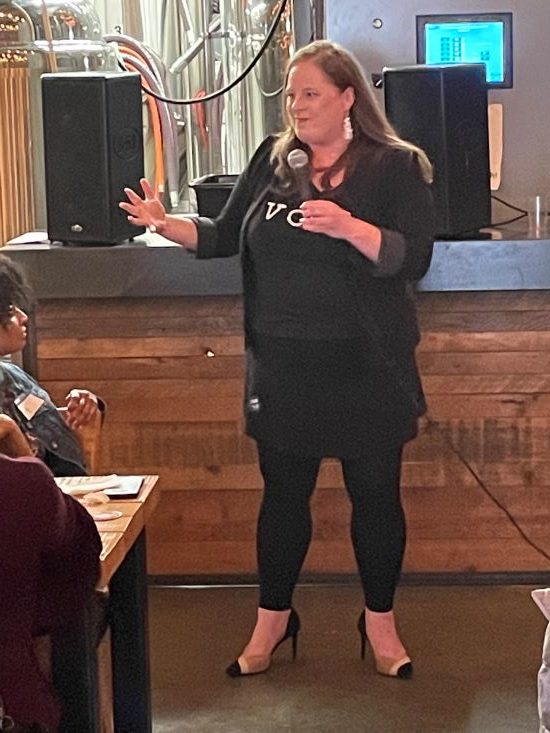
My personal and professional experiences have shaped my drive to fight poverty and a fierce commitment to equity and justice. As a white leader with access to power and privilege, I feel compelled to do more. I believe that homelessness and poverty are policy choices that can be eradicated with investments and interventions that match the size of the problems.
But we won’t get there by doing the same things over and over again. And so, it’s time for me to take on new professional challenges to address poverty and strengthen our democracy. For me, this is the moment for revolution—not evolution. One that codifies access to housing, food, healthcare, education and economic opportunities as human rights. Our communities can’t wait.
While saying goodbye to my United Way family is hard—I’m excited for what comes next. This decision is easier knowing we have such a talented, creative and equity-focused team in place.
Throughout my United Way career, I have learned from so many people. But it was my late boss and mentor, Vince Matulionis, who pushed me harder than anyone else and shaped my fight to solve these core issues. I’ve kept “what would Vince do” on my whiteboard for many years. It shaped so much of my work in recent years and informed my list of “What would Lauren do.”
- Have a North Star and keep to it.
- Dream big. No one is stopping you.
- Scarcity squashes great ideas. Think and plan with abundance.
- Get out of the way and give people money: most people struggling with hunger, homelessness and poverty have one thing in common—they need money. Some people will need other services and resources – but they all need money. Direct cash transfers are effective and efficient.
- Be brave and take risks. Failing is OK if you do it quickly and learn from it.
- Teamwork makes the dream work. You can’t do this work alone, so be kind, have grace and roll up your sleeves.
- Results matter. Equitable results matter more.
- Scale what works.
- AmeriCorps is a national treasure. It creates impact today and a talent pipeline of social justice leaders. Leverage the resources. Trust them to take on big projects. Increase funding to support them.
- Good policy requires effective and equitable implementation.
- Technology can’t fix bad policy. But it can aid equitable implementation.
- Build a big tent of people with various points of view AND center the voices of those most impacted by the issue you are working on.
- Make decisions. Big or small. Hard or easy. Putting off decision-making causes people to spiral and work to stall.
- The “Seattle process” does not equal progress. It will kill your soul. Let’s kill it before it kills us
- Be honest about the scope of a problem and ask for what you need, not what you think you will get. Whether it be policy, funding or partnership—you need to ask for more.
- Listen to the advocates and the community with whom you are partnering—they will be there long after the consultants, elected officials and philanthropists go home.
- Dismantling unjust systems and disrupting the status quo is hard and is a team effort. Find good people to do it with.
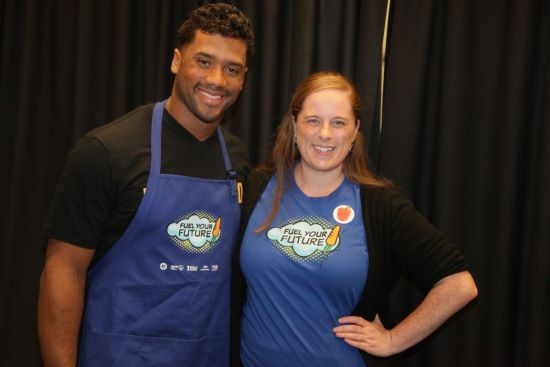
A big thank you to the incredible people, partners, advocates, mentors and friends who have been part of my time at United Way. Special thanks to my incredible partner, Mike, who has done more for United Way than anyone will ever know.
Onward!

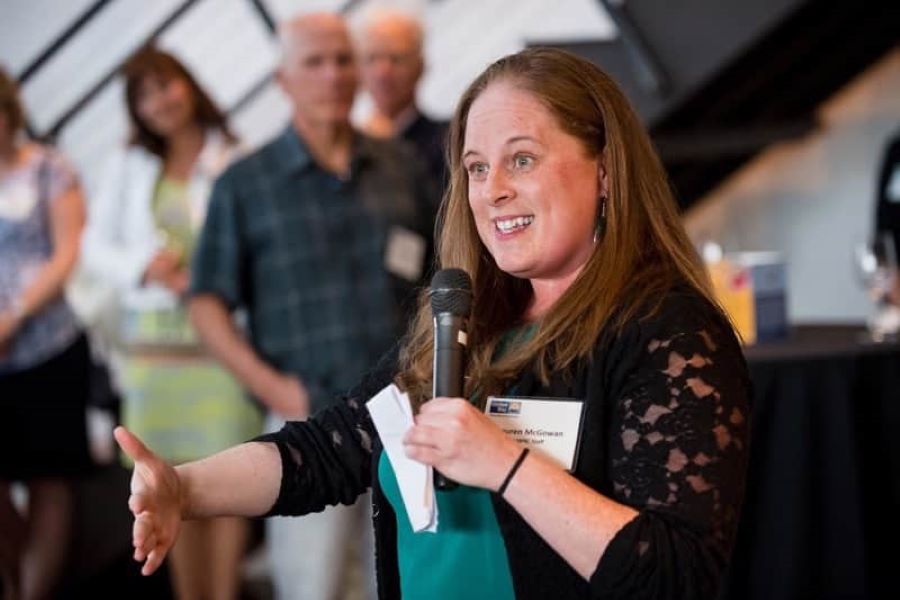
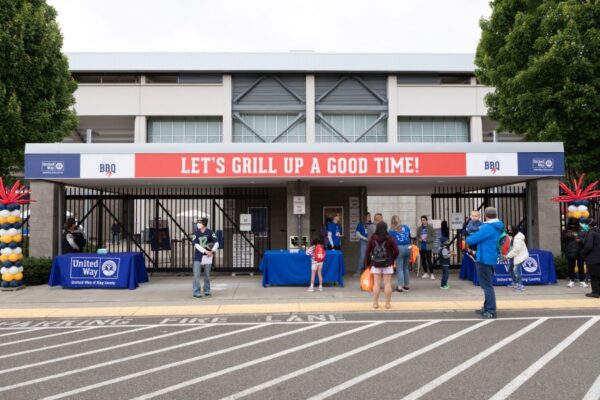
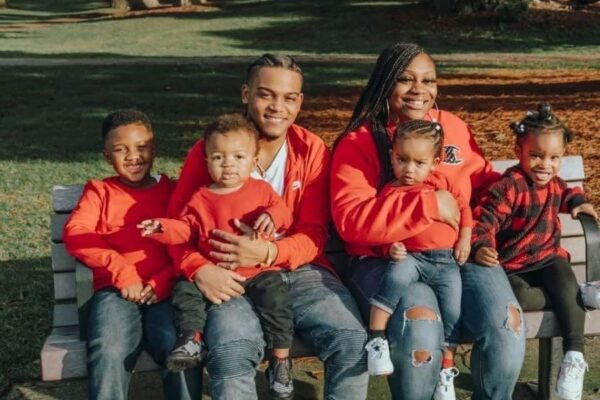
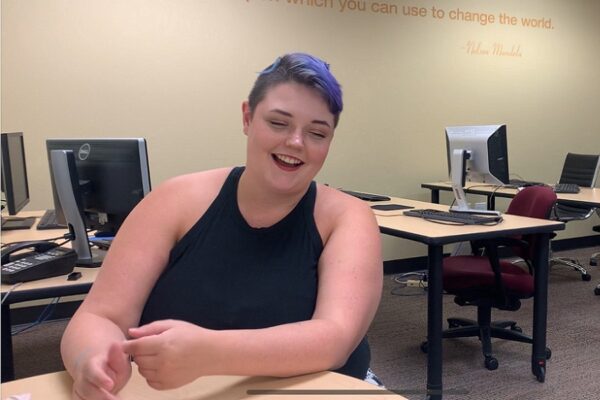
Comments